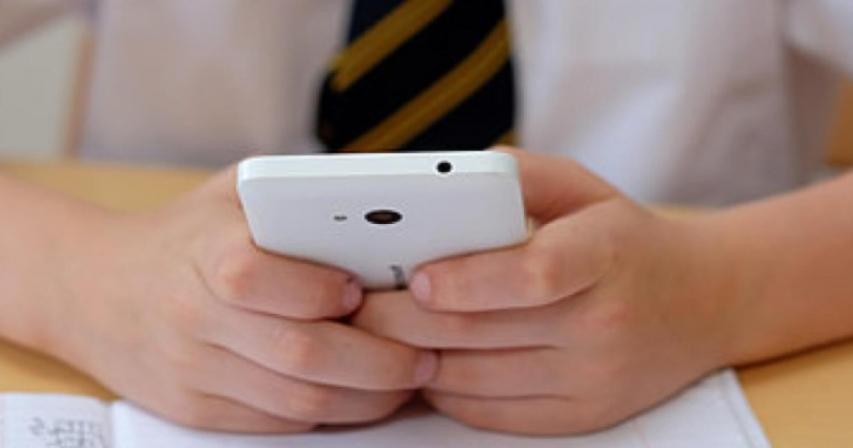UAE schools restrict mobile phones to minimize student distractions

The ban on smart devices in schools in the Netherlands gained worldwide attention recently, but strict tech policies are already in place in many schools in the UAE.
Students in the Netherlands studying in elementary and high schools are currently banned from using cell phones, smartwatches, and tablets. The government categorized these gadgets as "distractions" that disrupt academic performance and social interaction.
In February, England put a restriction on using mobile phones in schools
Education experts have pointed out that numerous schools in Dubai have enforced rigorous mobile phone rules.
"We enforce a strict policy on mobile phones." Lisa Johnson, Principal of the American Academy for Girls in Dubai, stated that although students can have phones with them, they must have the teacher's explicit permission to use them in class.
The school enforces a system of consequences for violations that is based on graduation status.
Following a first warning, additional violations lead to the phone being taken away and kept by the principal until a parent picks it up from school. She stated that this method guarantees that classroom time stays concentrated and without unnecessary interruptions.
School administrators stress the importance of promoting responsible technology usage, with a focus on teaching students about proper use and the health hazards linked to prolonged screen time.
Ban on mobile phones at school campus
Specific establishments, especially schools that adhere to the Indian syllabus, implemented a rule prohibiting the use of mobile phones.
Deepika Thapar Singh, CEO-Principal of Credence High School, stated, "Our goal is to create a concentrated and interesting learning atmosphere for our students." In order to accomplish this goal, we have implemented a strict no-mobile phone rule at school, urging students to focus completely on their studies.
We have a system in place that allows parents to easily contact teachers and supervisors as necessary. In times of emergency, parents are able to reach out to the school reception for quick help.
Schools become more creative
Johnson stated that students in Grade 1 and older need laptops or tablets with features comparable to smartphones. Locking mobile phones decreases in effectiveness because of this accessibility.
"In order to promote in-person communication, certain schools have established specific timeframes for technology usage during breaks, allowing students to utilize their devices within designated zones for a set amount of time."
Furthermore, we are exploring the possibility of introducing a system in which students must utilize exercise equipment to access technology during breaks, encouraging physical activity and responsible use of technology.
Restrictions in place to prevent access to social networking platforms
Principals also emphasize that school networks are equipped with robust filters that restrict access to social media platforms, reducing distractions and safeguarding students from unsuitable material.
We constantly check and revise these filters, consistently including additional sites in the banned list when needed. Although we advise against using technology during breaks, it can be difficult to monitor since students frequently utilize their devices for reading and other educational activities. Johnson stated that instead of enforcing strict rules on devices, they teach students how to utilize them in a smart and effective manner.
Partnership between home and school is necessary
Some Dubai schools organize frequent meetings for parents to talk about the matter with teachers. They clarified that a strong partnership between home and school was better than imposing a 'total ban'.
Simon Herbert, who is the Head of School/CEO at GEMS International School in Al Khail, stated that secondary students are permitted to bring a phone to school and can store it in either their locker or school bag. This implies that a phone should not be utilized during the school day. Following school hours, students have the ability to communicate with home if necessary, and vice versa. The use of phones in primary school is not encouraged, according to the handbook for families.
When considering different devices, school administrators stressed that laptops and tablets are viewed as tools to achieve a goal, not the goal itself.
Although technology is a potent resource, educators must justify its inclusion in lessons. Using technology in a lesson can greatly improve it by using platforms, resources, engagement, and cognitive challenges, but we should never solely depend on technology. Herbert emphasized the importance of careful planning with our educators.






Comments